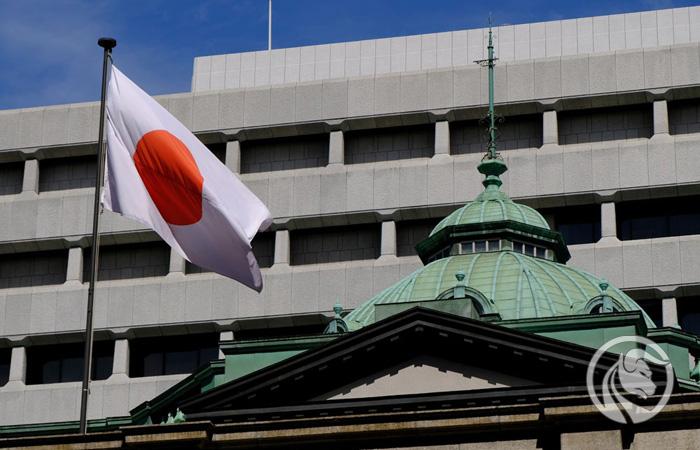Will the Bank of Japan raise rates for the first time since 2007?
It seems that the most important event of next week is the Fed's decision. Nothing could be further from the truth. The decision itself will not bring any surprises, although of course a change in rhetoric to a more dovish one cannot be ruled out. However, the chances for this are small, considering the surprise with the inflation reading. Therefore, the decision of the Bank of Japan may turn out to be a decisive event may dictate the situation on financial markets in the coming months. If inflation does come to Japan, it could dramatically change the direction of global money flows.
BoJ faces an important decision
Bank of Japan has long been speculating on the possibility of exiting negative interest rates. The stagnation in this country has actually been going on since the 90s, although the last increase took place in February 2007. Then the main interest rate was raised to the "astronomical" level of 0,5%. In the case of Western countries, we would even talk about zero interest rates. Meanwhile, at that time, it was the highest interest rate in Japan for 10 years. Economic stagnation and the lack of high inflation meant that interest rates remained at low levels for years. Japan was one side the largest carry-trade transactions in the world. Investors borrowed funds at "poor" interest rates and invested them elsewhere.
At the moment, the United States gives a very high interest rate of 5,5%. The main rate in Japan is -0,1%, so the difference is very large. If we add to this the depreciation of the yen against the dollar in recent years, the loans were very easy to repay. However, if the BoJ decides to increase rates, this may be the end of this situation. Of course, these will not be drastic increases, but it may change the currency situation and the yen may be one of the strongest currencies on the market.
On the other hand, there is speculation about abandoning the yield curve control program. In such a case, yields will be "freed", so Japanese investors will be able to benefit from higher rates of return than before. If Japanese investors and those using carry trade start selling their assets, mainly from the debt market, and returning capital to Japan, this may lead to drastic market movements. It is worth mentioning that Japan is one of the largest holders of American debt.
If not now, then when?
What changed the BoJ's attitude? Wage negotiations are ongoing in Japan at the moment and it is said that we are dealing with the largest increases in at least 25 years. Wage growth is expected to be higher than last year and in some cases may exceed 5%. This is a lot taking into account inflation and, for example, data from the USA, where at the moment wages are growing slightly slower than 5%.
What about the yen then? The currency has a lot of room to grow. After the last increase in 2007 USD/JPY pair dropped from around 123 to 75 in 2011. Of course, this was the result of the crisis and extreme relaxation in the USA. On the other hand The US is now facing interest rate cuts. Will the situation then normalize in the medium term and the USD/JPY pair will head towards the long-term average around 120? This will depend on the BoJ and the economic attitude in the US. However, there have been numerous speculations about moves by the BoJ, but it has never delivered. If not now, then probably never.
As of 08:00, we were paying PLN 3,9140 for the dollar, PLN 4,2813 for the euro, PLN 4,4500 for the franc, and PLN 5,0071 for the pound.
Source: Michał Stajniak CFA, XTB






















![Forex Club – Tax 9 – Settle tax on a foreign broker [Download the Application] Forex Club - Tax 9](https://forexclub.pl/wp-content/uploads/2024/02/Forex-Club-Podatek-9-184x120.jpg?v=1709046278)
![Trading View platform – solutions tailored to the needs of traders [Review] trading view review](https://forexclub.pl/wp-content/uploads/2024/03/trading-view-recenzja-184x120.jpg?v=1709558918)
![How to connect your FP Markets account to the Trading View platform [Guide] fp markets trading view](https://forexclub.pl/wp-content/uploads/2024/02/fp-markets-trading-view-184x120.jpg?v=1708677291)
![CRB index – one of the popular commodity market benchmarks [Guide] crb index](https://forexclub.pl/wp-content/uploads/2024/05/indeks-crb-184x120.jpg?v=1715055656)
![How to invest in ChatGPT and AI? Stocks and ETFs [Guide] how to invest in chatgpt and artificial intelligence](https://forexclub.pl/wp-content/uploads/2023/02/jak-inwestowac-w-chatgpt-i-sztuczna-inteligencje-184x120.jpg?v=1676364263)





![Izabela Górecka – “Success on the market depends not only on knowledge, but also on emotional stability” [Interview] Izabela Górecka - interview](https://forexclub.pl/wp-content/uploads/2024/04/Izabela-Gorecka-wywiad-184x120.jpg?v=1713870578)
![WeWork – the anatomy of the collapse of a company valued at $47 billion [WeWork, part II] wework bankruptcy story](https://forexclub.pl/wp-content/uploads/2024/04/wework-bankructwo-historia-184x120.jpg?v=1711729561)
![Adam Neumann – the man who screwed up Softbank [WeWork, part AND] adam neumann wework](https://forexclub.pl/wp-content/uploads/2024/04/adam-neumann-wework-184x120.jpg?v=1711728724)


![The most common mistakes of a beginner trader - Mr Yogi [VIDEO] Scalping - The most common mistakes of a beginner trader - VIDEO](https://forexclub.pl/wp-content/uploads/2024/03/Scalping-Najczestsze-bledy-poczatkujacego-tradera-VIDEO-184x120.jpg?v=1711601376)
![Learning patience: No position is also a position - Mr Yogi [VIDEO] Scalping - Learning patience - No position is also a position - VIDEO](https://forexclub.pl/wp-content/uploads/2024/03/Scalping-Nauka-cierpliwosci-Brak-pozycji-to-tez-pozycja-VIDEO-184x120.jpg?v=1710999249)
![When to exit a position and how to minimize losses - Mr Yogi [VIDEO] Scalping - When to exit a position and how to minimize losses - VIDEO](https://forexclub.pl/wp-content/uploads/2024/03/Scalping-Kiedy-wyjsc-z-pozycji-i-jak-minimalizowac-straty-VIDEO-184x120.jpg?v=1710336731)


















Leave a Response